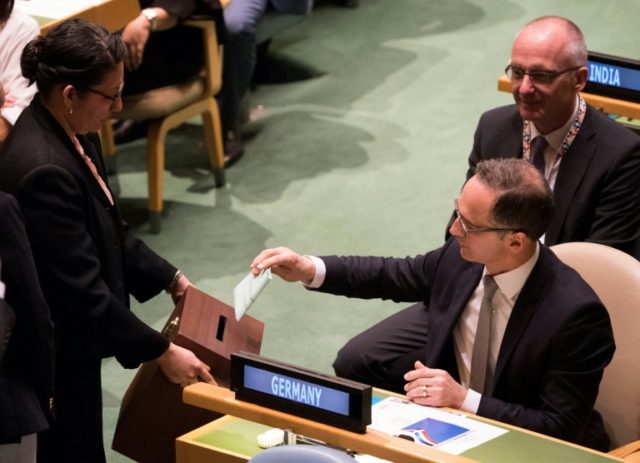United Nations (United States) (AFP) – The United Nations General Assembly on Friday was choosing five new non-permanent members of the Security Council, with Belgium, Germany and South Africa among those on the list.
In order to win a two-year mandate beginning in January, each candidate country needs to secure two thirds of the votes of nations casting their paper ballots from 10:00 am (1400 GMT).
While there are 193 UN member states, “a few guys will have forgotten there’s an election and won’t be there,” a diplomat quipped.
There are 15 members on the UN Security Council, including the five permanent ones — Britain, China, France, Russia and the United States — and 10 non-permanent members, half of which are elected each year.
Just before taking up their duties, the elected states get intense training about Security Council protocol and customs.
During their mandate, the ambassadors will each preside over the council for a month.
Friday’s election of five new members from regional groups is not expected to lead to any surprises, the only unclear outcome being for the Asia-Pacific slot, which Indonesia and the Maldives are both seeking.
Belgium and Germany are set to obtain the two seats for the Western Europe and Others Group after Israel dropped out of the competition.
– Elaborate nomination process –
In accordance with a deal at the African Union, the Africa slot is due to go to South Africa, while the Dominican Republic is expected to take up Latin America’s spot after a similar consensus in that group.
Each regional bloc has its own process for Security Council candidates. For some, “it’s first come first served,” and countries often seek a seat very early on, a diplomat said, speaking on condition of anonymity.
“You can put forward your candidacy for 10 years,” the diplomat added, though others can challenge that spot.
For the current election, “Israel in the end decided to withdraw because it understood it stood no chance and could face humiliation with 30, 40 or even 50 votes maximum,” which would trigger its automatic elimination, the diplomat explained.
In the Western Europe group, there is no agreement on who can get a spot. “As soon as it leaves the Council after a term, Germany systematically puts forward its candidacy for six or seven years later,” the diplomat said.
So before seeking a seat, a country looks at the competitors already listed.
The diplomat noted that the Africa group has a “very sophisticated” process in order to always have three seats at the Council, including one Arab country.

COMMENTS
Please let us know if you're having issues with commenting.